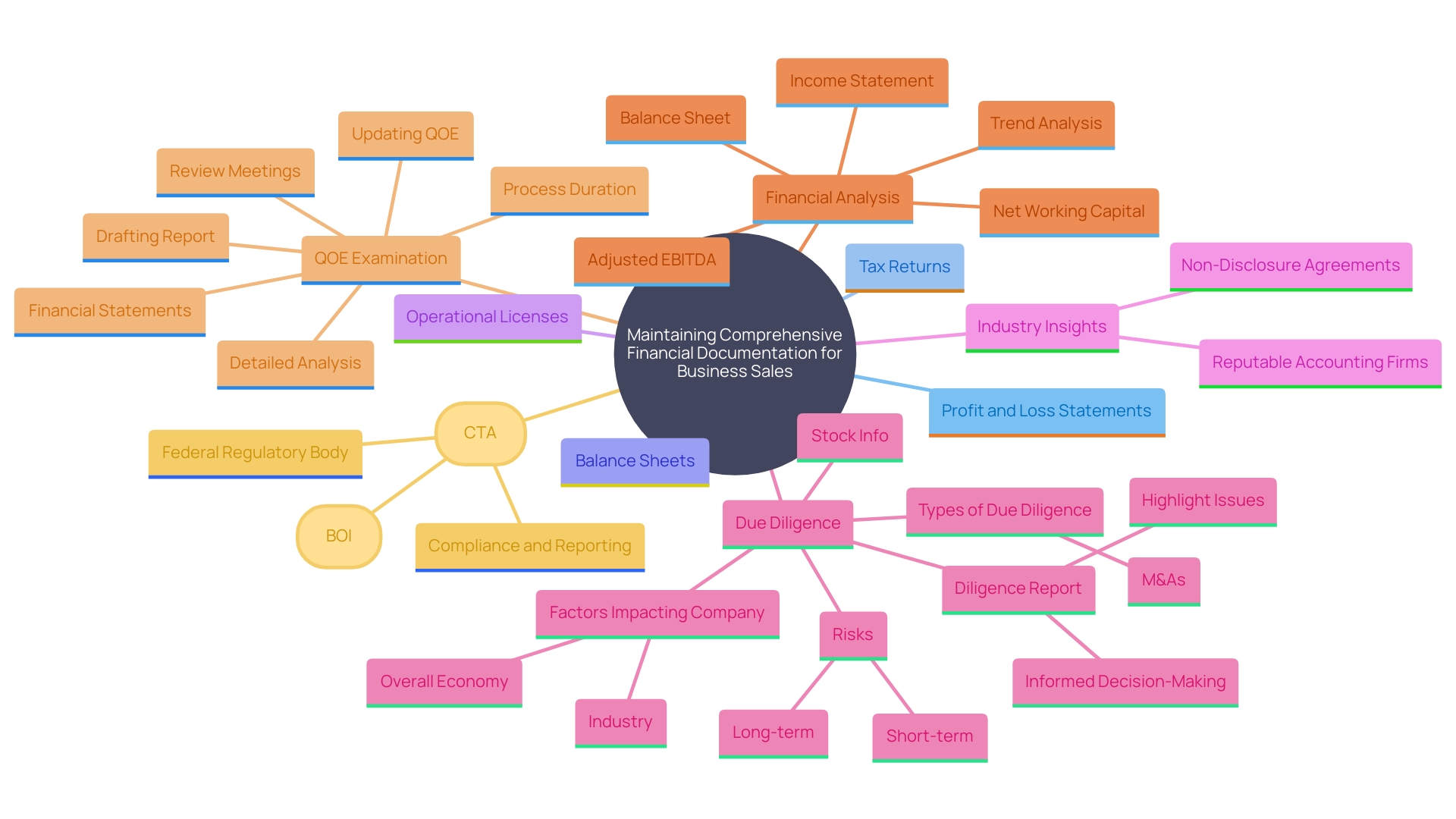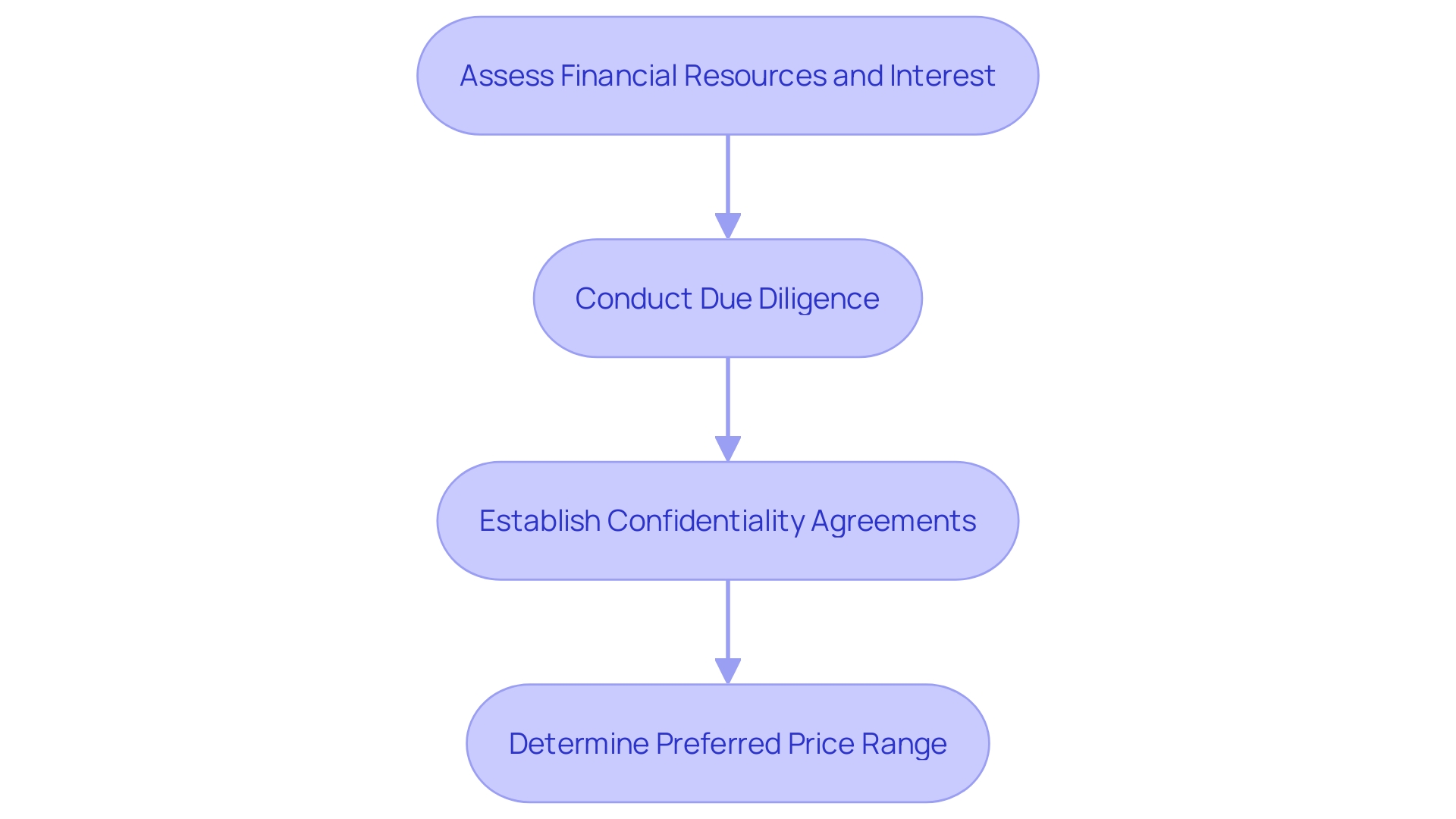Introduction
Preparing to sell a business marks a milestone for any entrepreneurs venture journey. It involves careful planning and strategic implementation while ensuring the business is showcased in the best way possible for potential buyers to see its true worth This overview outlines crucial steps to take in readiness for a fruitful sale. From readyng the business and evaluating its actual value to sorting out financial and legal paperwork.
Seeking assistance from professionals and implementing effective marketing strategies while screening potential buyers are key elements in guaranteeing a seamless transition process in selling a business. Lastly but significantly important is honing negotiation skills. Concluding the sale with precision to achieve a gratifying and financially rewarding outcome. Approach this venture with assurance as groundwork and strategic plotting lay the foundation, for a prosperous business transaction.
Step 1: Prepare Your Business for Sale
Ensuring your company is in shape is crucial for attracting prospective customers. Start by evaluating how your enterprise operates and enhancing interactions with clients while also upgrading your products or services. Address any persistent issues that could deter purchasers including debts or ongoing conflicts. A prepared enterprise not only displays a positive image but also establishes the foundation for a quicker transaction. Possible purchasers will thoroughly review every aspect of your enterprise during the evaluation phase, so it's essential to have everything organized. Frank Williamson stated that merely being an enterprise doesn't automatically ensure a smooth sales process is guaranteed. The range of buyers could differ significantly depending on the distinctiveness of your company's offerings. To enhance the value of your enterprise to the extent possible you should think about implementing the Value Acceleration Methodology created by the Exit Planning Institute. This approach combines aspects like value expansion and safeguarding with transfer strategies. It's advisable to assess your company's worth alongside your financial advisor to pinpoint areas for enhancement and ensure readiness for any potential transaction. 'Ensuring that your operations run smoothly and efficiently while also meeting legal and regulatory requirements is essential for maximizing value and facilitating a transition after selling your enterprise.'.

Step 2: Determine Your Business Valuation
Grasping the significance of evaluating your enterprise's market value is essential when striving for a successful transaction! 'Hiring an appraiser can make this intricate process much simpler for you to navigate through smoothly and effectively. They carefully scrutinize financial records along with market trends and recent sales data to pinpoint the real value of your enterprise. This thoughtful evaluation ensures that you establish a fair price that avoids both underestimating and overpricing your venture. As an example; delving into a Quality of Earnings (QOE) analysis provides an in-depth examination of earnings consistency and financial stability, shedding light on the reliability of revenue streams and potential vulnerabilities.'. By grasping these factors in advance; you equip yourself to deliver a persuasive and precise assessment that mirrors the value of your company effectively.

Step 3: Organize Your Financial and Legal Documents
Prospective purchasers will carefully examine your records and legal paperwork in great detail to ensure accuracy and completeness. It is crucial to have maintained profit and loss statements, tax returns, balance sheets and all necessary operational licenses readily available. According to the 2022 Small Enterprise Credit Survey conducted by the Federal Reserve Banks, 66 percent of small establishments have relied on personal funds or support from family members over the past five years. This highlights the importance of keeping clear financial records. Doug Bend of Bend Law Group emphasizes the significance of a non-disclosure agreement to protect sensitive corporate information effectively. Additionally, Nanxi Liu from Blaze. Tech recommends having a reputable accounting firm examine your records to build trust and expedite the due diligence. Comprehensive and well-kept documentation not only streamlines the selling procedure but also strengthens your enterprise's reliability and dependability, boosting its attractiveness to potential purchasers.

Step 4: Engage Professional Help - Brokers, Lawyers, and Accountants
Selling an enterprise can be quite complex and daunting; however seeking assistance from experts can truly make a difference in the process. Specialized professionals such as business intermediaries, attorneys, and accountants bring expertise to the table when it comes to transferring ownership of a company. These experts can offer insights based on data-driven negotiations to assist you in making decisions that increase the chances of a successful transaction. For instance, brokers can offer an evaluation of your enterprise in relation to industry benchmarks, allowing you to understand its actual market worth more distinctly.
Besides giving guidance to you these experts can simplify the entire procedure for you too right? Lawyers can speed up the process of finishing contracts by utilizing tools like DocuSign CLM which harmonizes effortlessly with sales platforms to offer approved contract models This minimizes the hours spent handling administrative duties and accelerates the bargaining process As, for accountants they guarantee that every financial detail is carefully handled ranging from tax consequences to financial reporting ensuring your benefits are protected during the deal
Furthermore‚ having a group of specialists can safeguard you from risks‚ as Doug Bend, from Bend Law Group highlights that a robust mutual confidentiality agreement is crucial to prevent rivals from obtaining sensitive information without a true intent to buy‚ ultimately‚ the advice of experienced professionals not only eases the sales process but also sets your business up for the most favorable result.

Step 5: Create a Selling Memo and Market Your Business
Create a promotional pitch memo that highlights the advantages and unique characteristics of your enterprise along with the prospects it presents for development and achievement to prospective purchasers and investors alike. Start off with a summary that gives a quick overview of your business by defining its purpose or mission statement and identifying its target audience as well as outlining the key strategies in place. Delve into a market analysis to present the latest market trends relevant to your industry sector including average selling prices and possible shifts, in the market landscape. Please provide a breakdown of your forecasts through income statements and cash flow analysis along with a break even assessment included in the plan as well as a strategic overview and action steps detailing marketing initiatives for lead generation and pricing tactics along with methods, for managing client relationships effectively.
Distribute this promotional memo using platforms to connect with a larger audience efficiently. Utilize channels and social media to quickly promote it and reach a wide audience. Also leverage your connections to engage with potential customers. A written sales memorandum combined with a strong distribution strategy can significantly enhance your visibility and attractiveness in the market.
'According to Fiserv's report about enterprises, across the country showing resilience and optimism for the upcoming year indicates a favorable opportunity to capitalize on customer interest potential patrons might have at the moment.'. Don't forget that providing personalized experiences and outstanding customer service can cultivate brand loyalty and establish connections that pave the path for a successful transaction.

Step 6: Pre-Qualify Buyers and Conduct Due Diligence
Before starting discussions, it is essential to evaluate purchasers to confirm they possess the required financial resources and a genuine interest in your enterprise. Performing due diligence is key, to validating their background and motives. This approach not only safeguards your enterprise but also accelerates the procedure by screening out unqualified candidates. As emphasized by Doug Bend of Bend Law Group, competitors could pretend to be interested solely to collect information on your enterprise without any intention of purchasing. From now on, a strong mutual confidentiality agreement is extremely important. Nanxi Liu from Blaze. Tech also highlights the importance of specifying your preferred price range to quickly assess whether to proceed with the lengthy and costly procedure of an M&A deal.

Step 7: Negotiate and Finalize the Sale
When you have potential clients lined up and ready to engage in transactions with them strategically for a successful negotiation phase where terms and pricing are discussed among other things – it's essential to be well prepared for the discussions ahead. Being flexible is vital in negotiations as successful negotiators are always ready to tweak their approaches based on details while also keeping their emotions under control. Studies indicate that thorough preparation and the ability to adjust tactics as needed play roles in guiding discussions, towards favorable outcomes.
During the negotiation phase, it's essential to remember the importance of performing due diligence on your operations to confirm data precision and uncover any concealed risks or liabilities that might emerge later. Be cautious and watchful to prevent situations where purchasers attempt to renegotiate the agreed purchase price based on information revealed during the due diligence phase. While re trading is a practice, in negotiations it is generally viewed negatively as it can be perceived as taking advantage of newly acquired information.
Negotiation also involves considering the earn out concept, which can help lessen the buyers risk and ensure that both parties are invested in the success of the business after it is acquired by linking a part of the transaction price to achieving future performance targets.
Once you and the other party come to an agreement on the terms of the sale deal to work hand, in hand with your advisors to wrap up the sale process thoroughly and accurately without any missing details Ensure that all documents are properly filled out and submitted to avoid any potential issues By being adaptable and willing to make concessions you can help make the transaction process go more smoothly and reach a positive outcome

Conclusion
Getting ready to sell a business is a task that needs careful planning and execution.The first step is to make sure that the business is in shape by dealing with any lingering problems and making it more attractive to potential buyers.By using approaches, like the Value Acceleration Methodology business owners can boost their companys value. Make the selling process smoother.
It's important to know the worth of a business when selling it and getting help from appraisers can give you valuable advice on setting a fair price for it all that organizing financial and legal paperwork helps to show transparency and build trust with potential buyers talking to professionals, like brokers lawyers and accountants makes the sale process easier as they have expertise that can assist in negotiations resulting in a better deal in the end
Crafting a sales memorandum and proficiently promoting the business are crucial measures in drawing in suitable purchasers The vetting of potential buyers upfront and carrying out comprehensive research safeguard the sellers concerns and guarantee that only sincere inquiries move forward Last but not least smooth negotiations rely heavily upon readiness flexibility and cultivating a harmonious relationship with buyers to ensure both sides are in sync, for a seamless transition
To sum up the selling of a business can be quite complex. Can result in satisfying results if handled with care and careful planning. By concentrating on getting ready for the sale determining the value seeking help and negotiating effectively business owners can move through this process confidently and achieve a successful transaction. Following these steps not boosts the worth of the business but also sets the stage for a smooth handover ultimately culminating in a fulfilling end, to an entrepreneurs venture.




